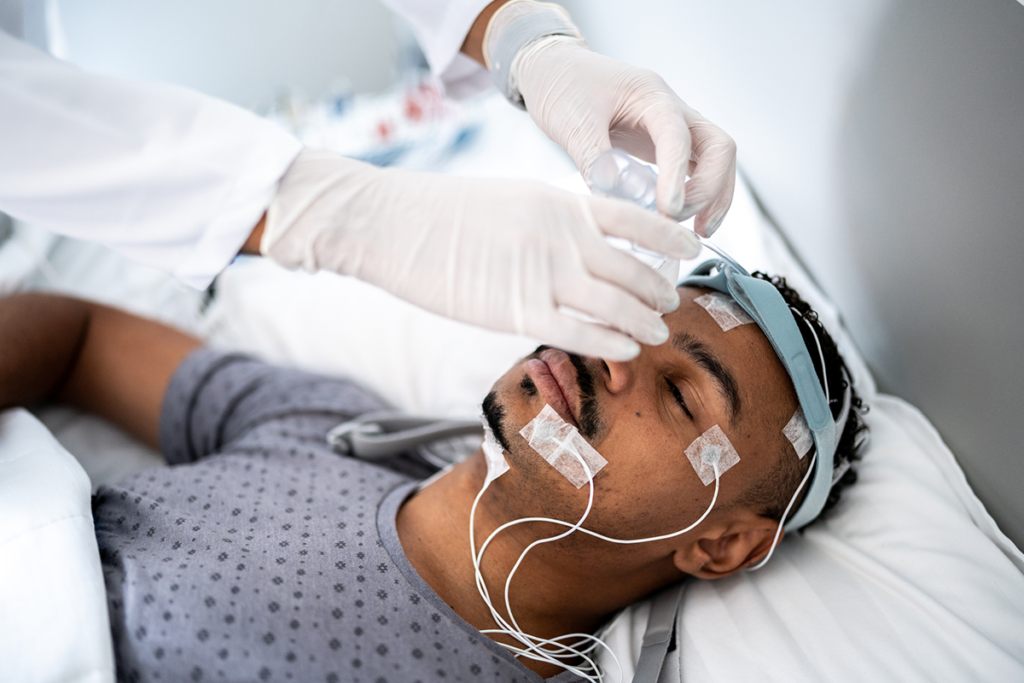For many, a good night’s sleep can feel elusive, especially for those suffering from sleep apnea. Fortunately, advancements in sleep medicine have introduced effective treatments like Continuous Positive Airway Pressure (CPAP) therapy. In this article, we will navigate through the world of CPAP testing, exploring everything from its significance in diagnosing sleep disorders to how it can dramatically improve your sleep quality.
Understanding sleep study CPAP testing
Sleep study CPAP testing is a crucial step in identifying and treating sleep-related breathing disorders. From its basic definition to its profound importance, understanding CPAP testing is essential for anyone seeking a healthier sleep experience.
What is CPAP testing?
CPAP testing involves an overnight sleep study that determines if an individual suffers from sleep apnea. During the test, several physiological parameters are monitored, including airflow, oxygen levels, and heart rate. The data collected helps in determining the necessity and parameters for CPAP therapy.
This testing is usually conducted in a sleep centre, where sleep technicians oversee the process. They ensure that the equipment is functioning correctly and help you if you encounter any difficulties while sleeping. Understanding the procedure can help alleviate any anxiety associated with the test.

The importance of sleep study CPAP testing
The significance of CPAP testing cannot be overstated. Sleep apnea can lead to a slew of health issues, such as high blood pressure, heart problems, and even complications with diabetes. Identifying the disorder through a comprehensive sleep study enables timely intervention and treatment.
Moreover, CPAP therapy is often life-changing for those diagnosed with obstructive sleep apnea (OSA). It improves the quality of sleep, enhances daytime alertness, and reduces the risk of associated health problems. Without this testing, many individuals would remain unaware of their condition and its implications on their health. Read more about risk at https://hrpp.research.virginia.edu/teams/irb-sbs/researcher-guide-irb-sbs/defining-risk
The science behind CPAP testing
Understanding the science behind CPAP testing provides insights into how it operates effectively to assist those with sleep apnea. This knowledge can demystify the process and encourage individuals to embrace it rather than fear it.
How does CPAP testing work?
During the test, electrodes are placed on the scalp, chest, and legs to monitor brainwaves, heart rate, and muscle activity. Additionally, a small device is used to measure airflow and oxygen levels throughout the night. These metrics help physicians to assess the presence and severity of sleep apnea.
Once the test is complete, the data is analysed to determine the best pressure settings for the CPAP machine, ensuring it meets the patient’s specific needs while they sleep. This tailored approach enhances the effectiveness of the treatment, leading to better sleep outcomes.
The role of CPAP in sleep apnea treatment
CPAP machines work by delivering a steady stream of air through a mask to keep the airway open during sleep. This functionality is essential for those with sleep apnea, as it prevents interruptions in breathing that can lead to poor sleep quality. Click here to find more about breathing.
Although adapting to CPAP therapy initially may require some adjustment, many users report significant improvements in their overall well-being after becoming accustomed to it. The therapy not only aids in better sleep but also leads to heightened energy levels during the day.
Preparing for your CPAP test
The thought of sleep testing can be daunting for some, but proper preparation can make the experience smoother and more comfortable. Knowing what to expect can ease anxiety and lead to a better experience overall.
What to expect during a CPAP test
When arriving for your sleep study, you will first check in and may even have a chance to tour the facility. Understanding the environment can help you feel at ease. A sleep technician will guide you through the process and prepare you for the test.
Once you are ready, you will be shown to a private room with a bed, where you will be connected to various monitoring devices. Although it may feel strange initially, most individuals find that the comfort of their surroundings helps them to relax and fall asleep.

Tips for a successful CPAP test
- Arrive well-rested to ensure you can sleep comfortably during the test.
- Wear loose-fitting, comfortable clothing to help you relax.
- Communicate openly with the staff about any concerns or questions.
- Try to replicate your usual bedtime routine to make the process feel more familiar.
Interpreting your CPAP test results
After the sleep study, reviewing your CPAP test results is essential to understand your condition and the next steps in your treatment journey. These results can provide clarity and direction.
Understanding your CPAP test report
Your CPAP test report will include vital information regarding the presence and severity of sleep apnea, as well as the recommended pressure settings for your CPAP machine. This is crucial for your healthcare provider to tailor a treatment plan that suits you best.
Don’t hesitate to take the time to go through the findings with your doctor. Understanding your test report can empower you to take an active role in your treatment and enhance your quality of sleep.
Next steps after your CPAP test
Once your results are in, the next steps typically involve discussing treatment options and setting up your CPAP machine. Your healthcare provider will work with you to ensure you feel comfortable with the equipment.
Routine follow-ups also play a significant role in adjusting CPAP settings and monitoring your progress. Keeping an open line of communication with your healthcare provider will aid in tailoring your therapy for the best results.
Improving sleep quality with CPAP
Many individuals find that once they begin using CPAP therapy, their sleep quality significantly improves. But how exactly does it contribute to enhanced rest?
The impact of CPAP on sleep quality
Research shows that individuals using CPAP therapy report fewer disturbances during sleep, leading to longer periods of deep sleep. This can manifest in improved mood, better focus during the day, and an overall increase in energy levels.
Moreover, using CPAP helps to alleviate the frustration often associated with interrupted sleep, allowing for a more pleasant bedtime experience. It’s a straightforward yet effective way to reclaim the quality of sleep that may have been lost due to sleep apnea.
Long-term benefits of CPAP treatment
Long-term use of CPAP therapy offers an array of health benefits, including reduced risk factors for cardiovascular diseases and improved metabolic health. Additionally, patients consistently using CPAP report enhanced cognitive function and decreased levels of anxiety and depression.
Ultimately, the path to better sleep quality through CPAP testing is a fully supported process. With the appropriate care and equipment, individuals suffering from sleep disorders can find their way back to restful nights and refreshed mornings.
Read about sleep study Rockhampton at: Affordable Sleep Study Rockhampton